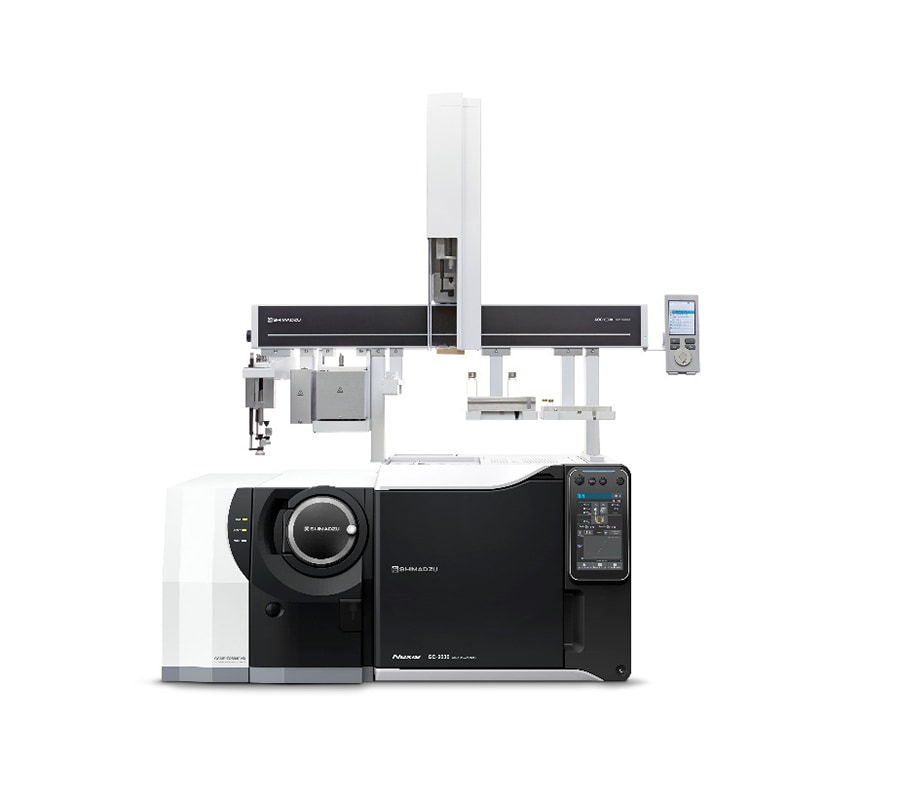August 1, 2024 | News & Notices Development of a Method to Predict Onset of Non-Alcoholic Fatty Liver Disease —Contributing to Preventive Healthcare for Lifestyle Diseases—
Shimadzu Corporation and St. Luke’s International University (SLIU) have developed a system capable of predicting the onset of non-alcoholic fatty liver disease (NAFLD). The system analyzes the patient’s blood using a gas chromatograph mass spectrometer (GC-MS) and calculates the NAFLD score from measured data on 14 types of metabolites. Scores above a certain level indicate an increased risk of developing NAFLD within 3 years. NAFLD is typically accompanied by other conditions such as obesity, diabetes, dyslipidemia, and high blood pressure, and is known to increase the risk of cerebrovascular diseases and cancers in organs other than the liver.* Preventing the onset of NAFLD is therefore essential for promoting good health. Shimadzu and SLIU are committed to promoting the widespread adoption of technologies for early detection and prevention of NAFLD. The findings of their joint research were recently presented at the 2024 European Association for the Study of the Liver (EASL) Congress held in Milan, Italy in June 2024.
Since February 2015, Shimadzu and SLIU have been conducting joint research under the theme “Search for Disease-Related Markers Using Serum Metabolomics in Health Screening” in an effort to develop test methods that can contribute to advances in preventive healthcare. In 2018, the joint research team discovered a blood test biomarker that can be used to diagnose NAFLD with GC-MS. After further research, the team has now developed a system that can predict NAFLD onset by using blood samples and clinical data from 4,495 individuals who underwent health screening at the Center for Preventive Medicine at St. Luke’s International Hospital operated by SLIU.
The system’s development was made possible by the fusion of Shimadzu’s mass spectrometry technologies and the valuable knowledge obtained from SLIU’s quality-assured blood samples, electronic clinical data, and statistical analysis. Applying this NAFLD prediction system in routine health screening and promoting improved lifestyle behaviors will make a meaningful contribution to preventive healthcare by mitigating the risk of NAFLD onset. Shimadzu is currently investigating whether the system has the same predictive potential using health screening samples from healthcare facilities other than SLIU, and is developing a simplified test system for prediction of NAFLD onset that is compatible for use across multiple facilities. The metabolomics system developed in the course of Shimadzu and SLIU’s joint research on NAFLD onset prediction is also being applied to chronic kidney disease and atrial fibrillation with the aim of realizing the widespread adoption of a comprehensive prediction system for lifestyle diseases using serum metabolomics.
Shimadzu’s medium-term management plan has designated the healthcare domain (which includes the life science field) as one in which it will seek to create social value. As part of this plan, Shimadzu is committed to addressing social issues in the healthcare domain. By developing and implementing new blood test techniques using its proprietary MS technologies, Shimadzu will continue efforts to help realize greater healthy life expectancy throughout society.
Leveraging its unique strengths, SLIU will continue its research and development on new healthcare technologies in order to provide patient-focused, high-quality personalized preventive healthcare services in line with its “Mid-Term Plan 2030.”
- * Junko Tanaka, 2019 Research Report, Research Project on Policy Measures to Overcome Hepatitis, Health and Labour Sciences Research Grant.

Shimadzu Product Using for the Joint Research


